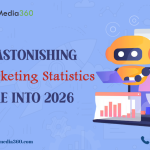The Power of Personalization: Crafting Customized Digital Campaigns

Today, digital marketing demands personalization to offer audiences more convenience and relevant brand experiences. To begin with, personalization means tailoring content to audience’s needs and behavioral patterns for better engagement. Next, marketers design customized campaigns to understand audiences and boost interaction with products and services. Then, brands analyze audience motivations and adjust offerings to match their preferences and expectations. Meanwhile, businesses recognize personalization’s power to influence and reshape modern marketing strategies and culture. Finally, our article explores essential elements for building successful personalized marketing campaigns that truly connect.
Knowing Your Audience
As a marketer, the first factor that brings you close to creating an almost perfect customized marketing campaign is by paying attention to your target audience’s preferences, ideas and behaviors. See-through analytics tool and customer feedback to evaluate their behavioral pattern and interest towards your products and services. Emphasizing these factors can contribute to achieving acute personalization, recognition, and growth of your brand infrastructure.
Segregation
To channel the power of personalization in marketing campaigns the second factor you need to consider to drive effectiveness, and productivity in the long run is segregation. Segment your target audiences in groups and analyze their behaviors and tastes. Segmentation is rewarding as it helps you understand the allocation of resources as per necessities and minimum or no waste is assured depending on the market demand.
Behavioral Targeting
Marketers choose behavioral targeting to improve personalization and deliver more relevant marketing experiences. They use browsing data to send ads and messages that match user interests and behavior. Brands study online activity to understand audience preferences and personalize their content accordingly. They retarget campaigns to re-engage users who showed interest but didn’t complete a purchase.
Customized Email Campaigns
To establish meaningful relationships with your audiences’ it is necessary to initiate a conversation by sending welcome emails to them after reading through their interaction history with your websites. Prioritizing their preferences, and tastes will build a reputation in their minds that doesn’t go away with time. Personalization in emails opens up a channel of interaction and partnership with your desired audience group.
Data Privacy and Protection
The most challenging factor of personalization is maintaining the security of vast customer data. To earn their unwavering trust you should see that the data submitted by them are preserved and accessed for knowledge only at their permission. Additionally, with data maintenance, the authority to disclose their confidential details must be permitted to continue to enjoy their continuous engagement.
Conclusion
The idea of personalization is undoubtedly gaining importance for its uniqueness. If you too want to establish market authority you should idolize the idea of personalization. Aiming it will profit your venture in the long run.






